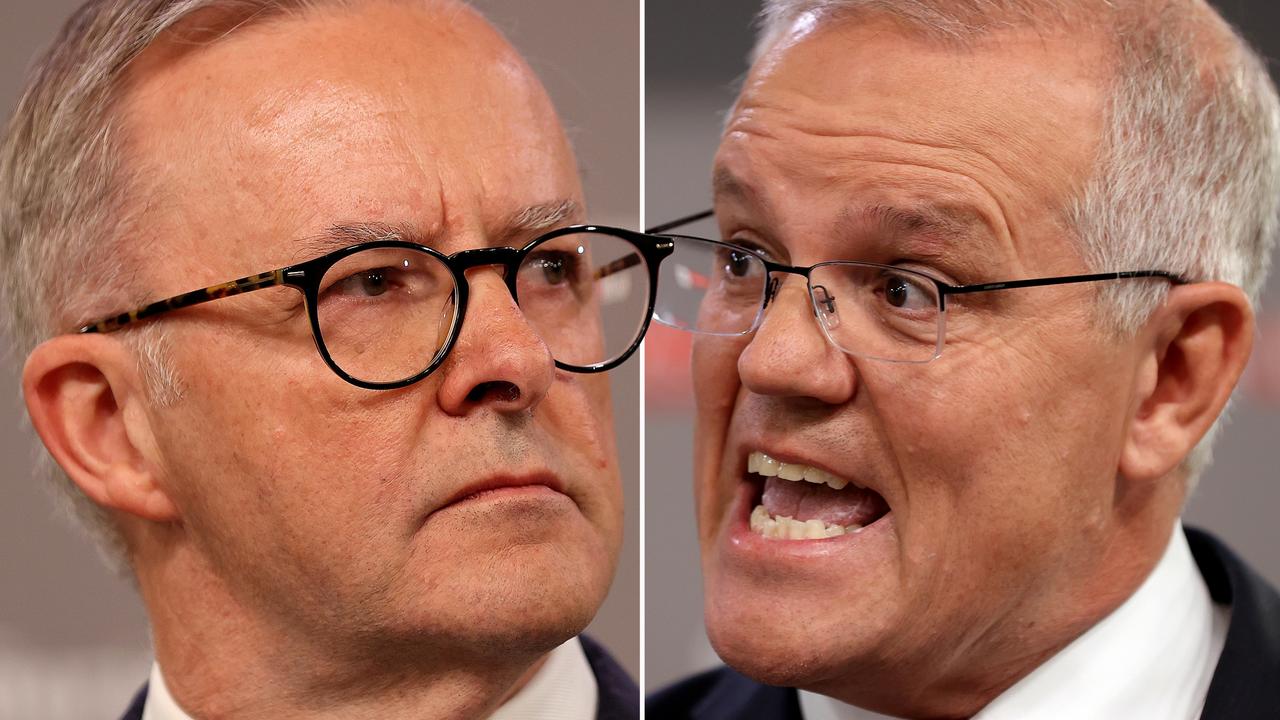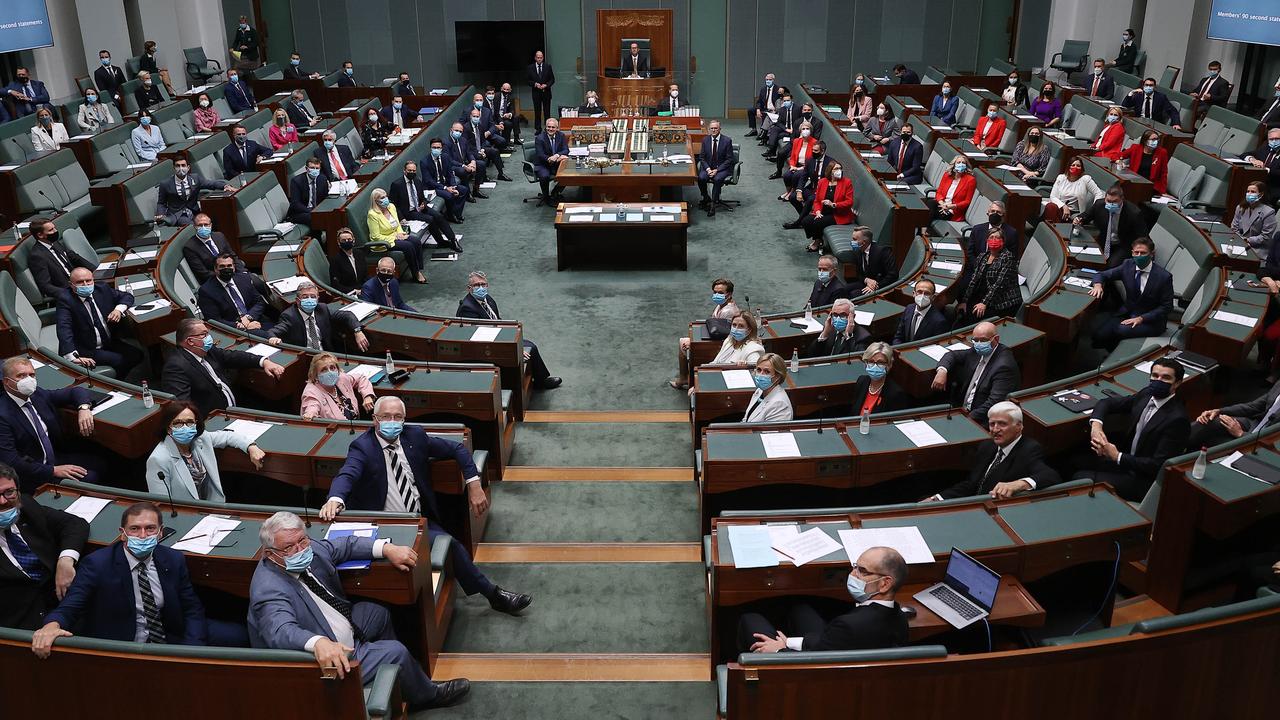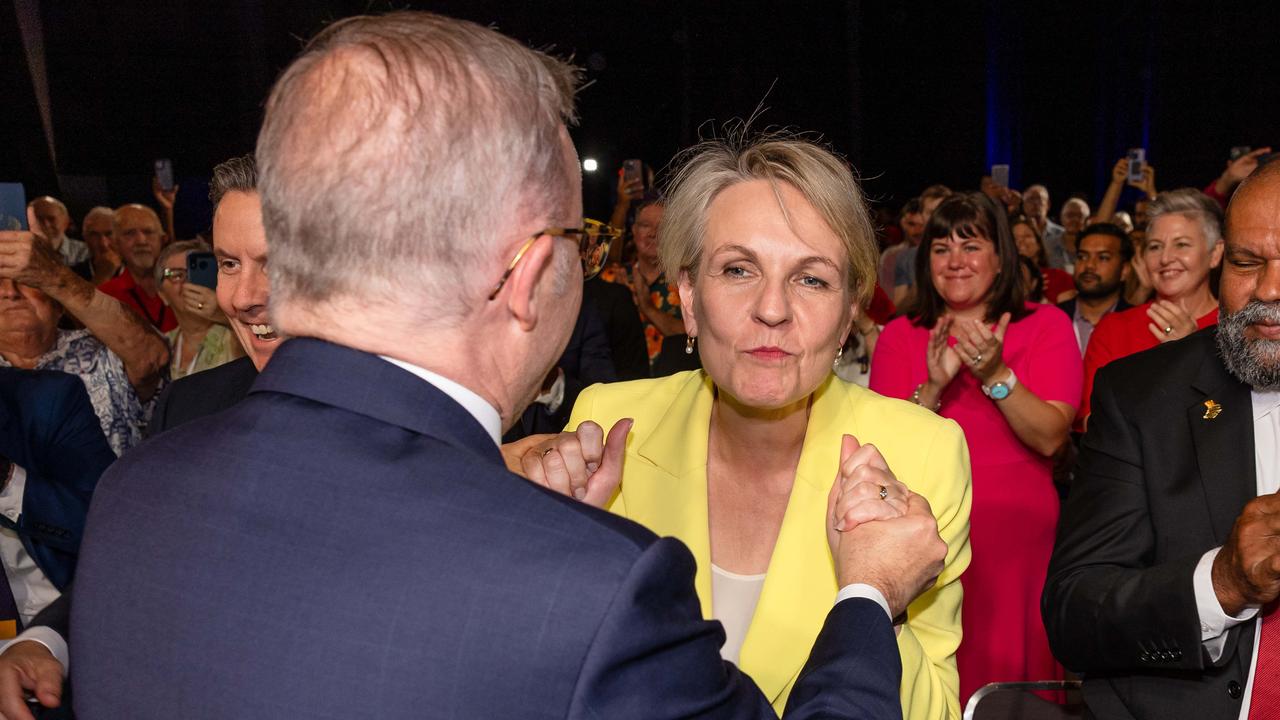Election 2022: What is a hung parliament? How it affects federal government
Early predictions are pointing towards neither party securing enough seats to gain a majority. This is what would happen under a hung parliament.

A major prediction has been made as more seats are called across the country, and it’s not news that either Scott Morrison nor Anthony Albanese want to hear.
ABC analyst Anthony Green said the “best figure” that can been seen from the numbers at the moment is a prediction for a hung parliament.
He said it was even difficult to predict which party would end up with more seats at the moment.
“It’s not clear but this is producing, at the best, at the moment, I’m seeing a hung parliament,” Green said.
“The numbers at the moment, Labor may end up with more seats, that’s one thing I would say. That’s because of all of these Independents.”
Green warned it could take a long time to work out which party won which seats.
“We may be in for two or three weeks before anyone works out who is the government. So I don’t know who will be going to the Quad meeting next week,” he said.

A hung parliament will come into play if neither Labor or the Coalition secures 76 of the 151 seats available in the House of Representatives, also known as the lower house, to form government.
Australia Institute executive director Ben Oquist said if Labor got 55 per cent of the two-party preferred vote, this should be sufficient to avoid this scenario.
But if Labor’s vote drops to around 52 or even 53 per cent, the result could come down to the results in each seat.
In a seat-by-seat scenario, which is what helped Prime Minister Scott Morrison claim victory in 2019, Mr Oquist said Labor would need to keep the 69 notional seats it has, plus add another seven seats to form government.
The latest Newspoll puts Labor in front at 54 per cent, compared to the Coalition on 46 per cent, so it could still be close.
Another scenario is that neither Labor or the Coalition gets 76 seats, so neither will be able to form government. Then we’ll be facing a hung parliament.
What is a hung parliament?
When neither major party claims victory in enough electorates to get 76 seats in parliament, neither of them will be able to form government without support from independents and other minor parties like The Greens, who sit on the crossbench.
The process can live up to its dramatic name — some may remember the agonising two-week wait and Rob Oakeshott’s excruciating 17-minute speech in 2010 as independents negotiated with both parties and announced who they would vote for, eventually allowing then Labor leader Julia Gillard to continue as prime minister.
Do they need to get the independents on side?
The Prime Minister can try to stay in office and face parliament to see whether he can survive a “no-confidence” vote. If he doesn’t get enough votes he has to resign, otherwise he could stay in office and lead a minority government.
However, both sides will usually try to negotiate a “confidence and supply” agreement with the crossbenchers to guarantee their support on “no-confidence” votes and for budget “supply” bills that authorise them to spend government funds.

According to The Conversation, it’s not necessary to have a confidence and supply agreement but it does help maintain a stable government, and also gives the Governor-General an indication of who commands support in the lower house.
This type of agreement does not mean that independents or other crossbenchers have to vote with the government on every issue — it just guarantees their support in general for essential government functions.
Despite comments they won’t do “any deals” it’s likely that in a hung parliament scenario, both leaders will try to negotiate agreements with the crossbench.
What will it cost the government?
Of course there are usually some strings attached and it’s likely crossbenchers will take the opportunity to push for action on issues important to them.
Currently there are seven crossbenchers including independents Helen Haines, Zali Steggall and Andrew Wilkie, as well as Rebekha Sharkie of Centre Alliance, Adam Bandt of The Greens, Bob Katter of Katter’s Australian Party, and Craig Kelly of the United Australia Party.
All of these except for Mr Kelly are likely to be re-elected.
Many of them have said they want more action on things like climate change and a federal integrity commission.
There are also many other independents, especially the “teal” candidates associated with Climate 200, who have a chance of being elected.
Any deals done could be kept secret and there are no rules about how long they have to negotiate.
So will it lead to chaos?
The PM has said warned of the “chaos” that could ensue if there was a hung parliament, although his predecessor Malcolm Turnbull predicted Australians voting for independents will help repair the Liberal Party.
Sydney University Professor Anne Twomey points out in The Conversation that forcing the government to explain and justify every bill on its merits and to reach a reasonable consensus is no bad thing.
But it could also result in governments failing to take hard, but necessary, measures in the country’s long-term interests. It could also see horse-trading to gain support for bills and unfair favouritism for projects in certain electorates.
“Whether a hung parliament ends up with policy paralysis and horse-trading on the one hand or major improvements in accountability and policy on the other, depends on the quality of both the government and the crossbenchers and their commitment to the public interest over self interest,” Prof Twomey said.
A hung parliament can also take its toll on the independents who control the balance of power.
Former independent Rob Oakeshott, who resigned as a MP after his prominent role in keeping the Gillard Government in power, described the politics as “ugly”, although he said the model he established was working.
Guardian Australia analysis showed the Gillard Government had the second-highest percentage of passed legislation, second only to the Howard Government when it had control of both the House and the Senate. The Gillard Government also scored the highest when looking at the overall rate of legislation passed per day.





